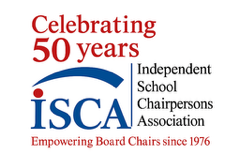October 2021
Member Query:
As a brand new Chair & relatively new trustee (in my 3rd year), I’m still striving to get my head around who owns which school policies. Some are clear: Investment policy & capital expenditure policy belong to the board. It’s less clear where responsibility lies for things like anti-bullying policy or student conduct & discipline policy. My hunch is that these are administrative policies that the board can endorse. But they seem to fall within the purview of running the school. Some do bump into law, as well. Is there a meaningful distinction between board policy and board-approved policy?
Reply from Cathy Trower:
This is a great question as it does indeed bump up against what so many boards and trustees wonder about: What is clearly the Head/administration domain: What clearly the Board’s domain; and What is the shared space. The NAIS diagonal line (that is ubiquitous) places “Policies” in the Board Decision / Head’s Advice (top box) space. But it does not specify which policies that means. All? Or only some? And how would you know? I also like the question posed above around “board policy” and “board-approved” policy.
My best advice for you as a new chair is to speak with you Head about this topic and, if they agree, spend some time at an upcoming Board meeting discussing the finer lines. My personal views (based on a lot of experience and seeing what works well at schools) are these:
- Policies that are clearly Board are about key areas of Board oversight (as you state – investment and capital expenditures – and I would add endowment draw; conflict of interest; budget; Head compensation; audit; whistle blower; Head succession plan; risk mitigation). NOTE: Some put cyber-security here with the Board; the Board should ensure that there are provisions in place to deal with such matters.
- Policies for the Board and Head to work out together: compensation philosophy; execution of contracts including amount below which the Head does not need to seek Board approval; enrollment philosophy including financial aid and admissions priorities; tuition remission for employees; employment contracts to limit the school’s liability; staff talent management; vendor contracts).
- Policies for the Head and their team: operational matters such as what you have above – anti-bullying; student conduct and discipline; family/student handbooks; student grading; graduation requirements; how offices of the school operate and reporting structure; admissions processes; employment/HR processes ad handbooks; data management / information systems; School communications including crisis communications).
Many have asked about matters related to COVID (e.g., vaccinations, masks). Heads have seen this as within their domain and, indeed, in many cases had to act quickly. Some sought advice from their Board Chair; others from their Executive Committee or Board officers.
